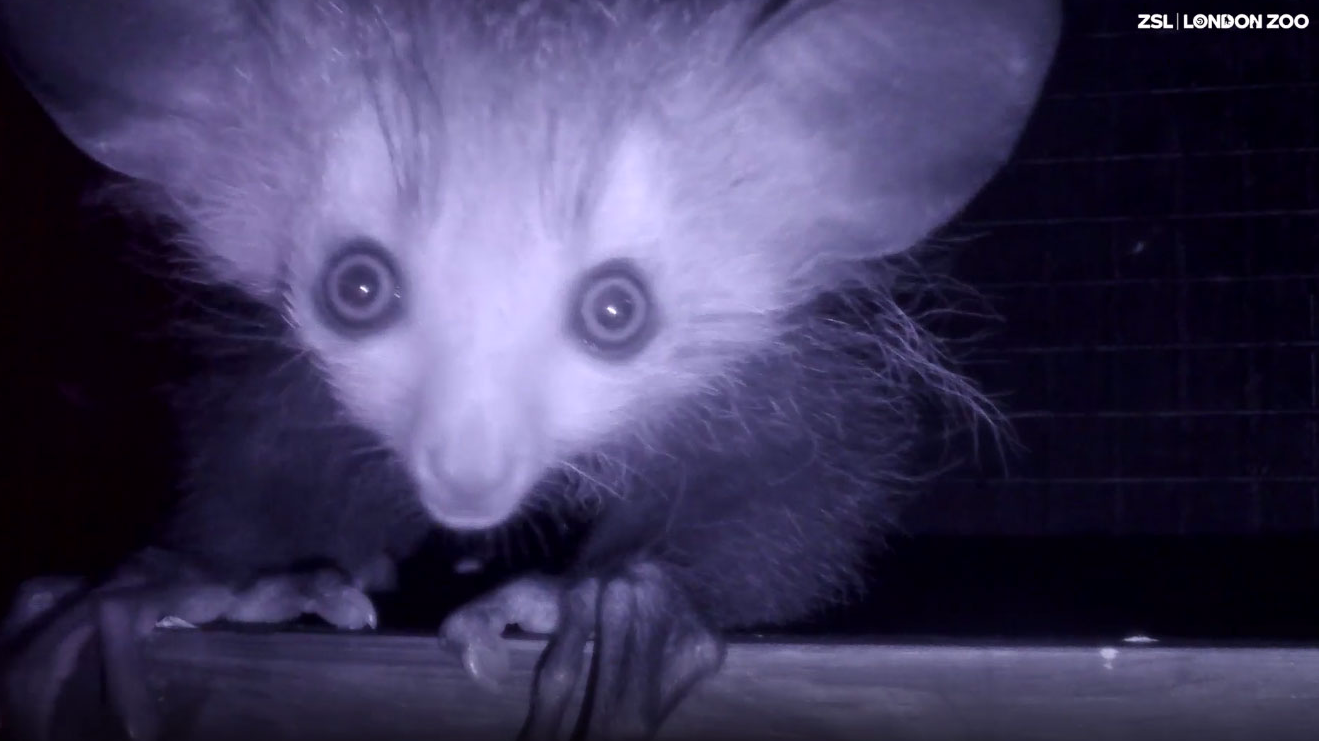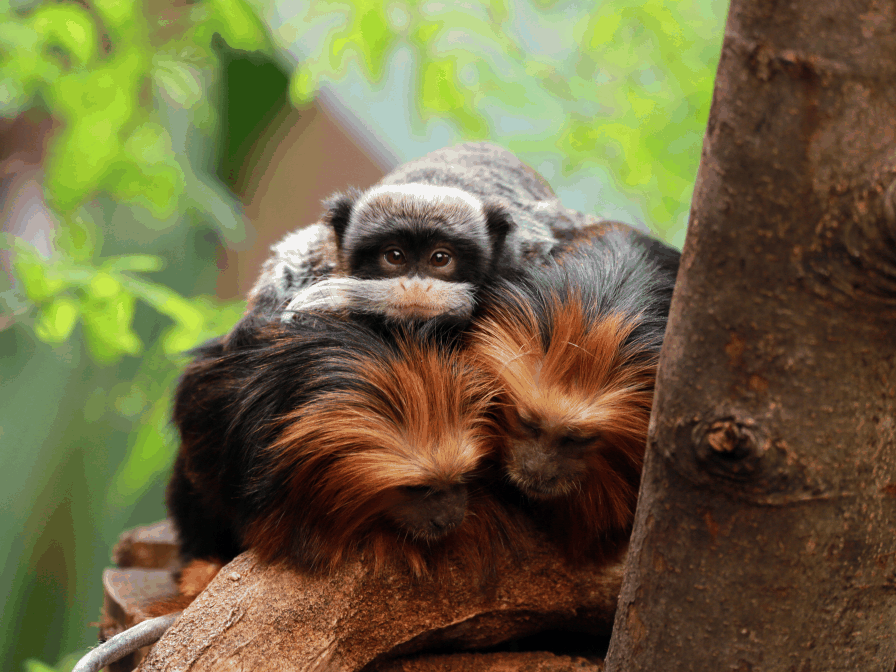
Aye-aye mum's parenting skills captured on camera by zookeepers
Author: Chloe Written: 2017-08-02
One of ZSL London Zoo’s newest mums has been caught showing off her parenting skills, in footage captured by zookeepers just in time for Mother’s Day.
Aye-aye mum Salem gave birth at the end of last year to baby Malcolm; the first of his kind born at ZSL London Zoo.
The nocturnal infant spent nearly two months tucked up inside its nest box, where keepers could see little of what was going on inside. Camera traps were set up to record any activity, and revealed Malcolm’s mum, Salem, busy nursing her infant, nest-building and eating.
However, as soon as Malcolm made his debut into the wider enclosure, mum Salem’s work began in earnest. Aye-aye mothers are dedicated parents and spend all of their time with their infants – teaching them how to climb through the trees, keep a look out over their territory and forage for food.
A new video captured by zookeepers, shows just how seriously Salem is taking her role – with the agile mum teaching Malcolm how to use his unique skills and special long fingers to find and dig out tasty food.
Christina Stender, Zookeeper at ZSL London Zoo, said: “Malcolm is now ten-months-old and is learning from his mum, mimicking her movements and skills.
“His huge ears allow him to ‘hear’ how far away potential live-food is, by using his elongated middle finger to tap on various objects - measuring the distance by echolocation.
“Malcolm has also begun searching for grubs by tapping the trees and listening for hollow sounds, and although he is not always successful - and has ended up chewing on a few unpleasant things like old leaves - his technique is definitely improving from mirroring Salem’s moves.
“Salem is a great mum, which you can see in this rare footage we have been able to capture of the pair.”
The aye-aye, native to Madagascar, is listed as Endangered by the IUCN. This species occurs in fragmented pockets (though in very low population densities) across almost the whole of coastal Madagascar. Population numbers are certainly in decline however, due to habitat loss and hunting. There is little understanding of population size and dynamics.

